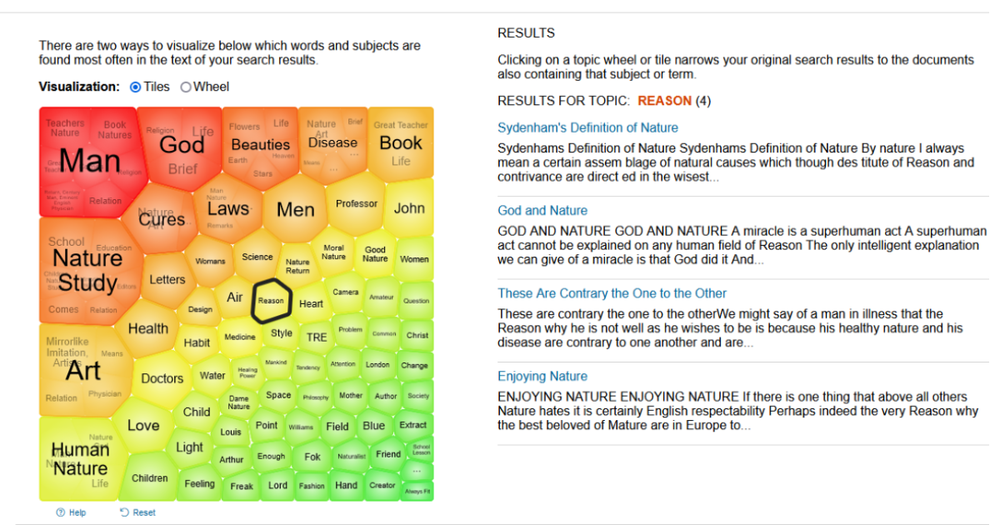Collection Spotlight: Digital Scholarship in Nineteenth Century Collections Online

by Patrick Williams, Humanities Librarian, Lead Librarian for Digital and Open Scholarship
The Libraries’ subscription to Gale’s Nineteenth Century Collections Online offers researchers access to an enormous archive of digitized versions of printed books and other publications, manuscripts, photographs and drawings, and other materials from the period. Items included relate to several key themes and collections, including Asia and the West; British Politics and Society; British Theatre, Music, and Literature; Children's Literature and Childhood; Colonialism and Culture; Maps and Travel Literature; Religion, Reform and Society; Science, Technology, and Medicine; and Women and Transnational Networks.
But with hundreds of thousands of documents to explore, how might a researcher zero in on a particular research topic of interest? Luckily, NCCO offers researchers a few approaches to immerse themselves in relevant material without having to rely solely on traditional search engine results. One of the most powerful methods is Topic finder, which “takes the titles, subjects, and approximately the first 100 words from a subset of your top results and feeds them into an algorithm” which then presents users with two graphic visualizations (“tiles” [pictured] and “wheel”), highlighting terms found most frequently in proximity to the original search terms. NCCO offers an example of how this works:
The topic for “Illinois” might bring up expected connections from the text like “Chicago,” along with unexpected but commonly related terms like “water,” “steel,” and the names of people who appear frequently in documents about Illinois.
Once the visualization has been created, users can investigate their topics and relationships among the tiles and slices, experiencing the expanse of a concept and drilling down to individual documents that draw their attention. The groupings themselves can also help researchers to identify hidden and surprising connections among materials across the entire resource.
In addition, NCCO offers a Term Frequency view of search results, as well as a geographic locator for sources. All three of these approaches are a testament to the ways emerging digital scholarship methods can provide researchers with new ways to explore questions among an ever-expanding landscape of sophisticated online tools and collections.
To provide feedback or suggest a title to add to the collection, please complete the Resource Feedback Form.
